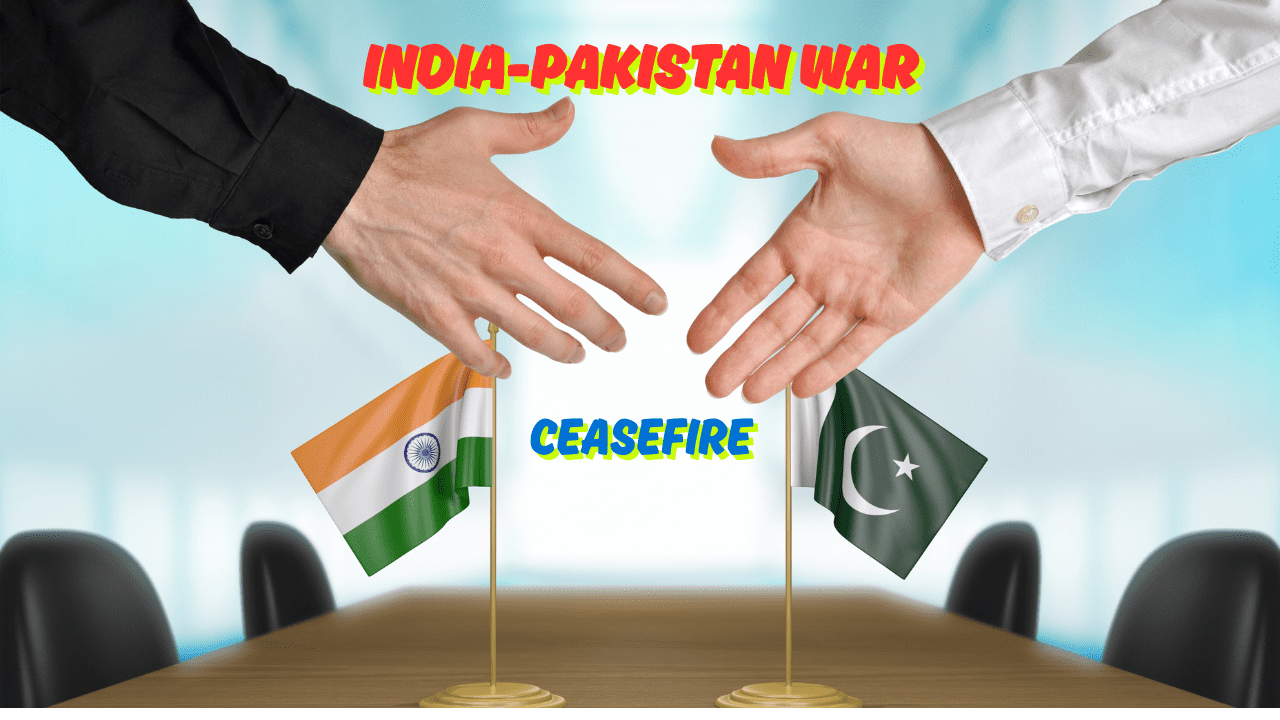Over the past few days, the whole world has been observing rising tension between Pakistan and India. As neighbours and volatile rivals, their rivalry can affect the power dynamics in the area. In these times, when global power pressure is already undergoing tectonic shifts, any heated conflict between these two nuclear powers can definitely shift the global power perspectives.
War is never a single state’s business. There are multiple affected parties involved. A full-scale war between these two countries can be a geopolitical earthquake. Their conflict can catalyse a seismic reordering of Asian and global power dynamics.
In the current situation, we will witness the roles of China, the United States, Russia, and the Gulf states shifting due to strategic allegiances.
The Background India-Pakistan War
Both nations are known for occasional regional fallout. However, after the recent unfortunate Pulwama attacks, things escalated and got out of hand. India seems to be convinced that Pakistan was behind the terrorist activities, but Pakistan denied the allegation and demanded proof.
Despite the offers from the Pakistani government to conduct a neutral investigation, the Indian state wanted revenge served hot and timely. Though Pakistan fully disregards the accusations as baseless, India has been persistent in nominating Pakistan as a terrorist shadow state.
While Pakistan has a history of such accusations, its offer for a neutral investigation can’t be ignored. The nation has claimed to fight terrorism for decades and has lost more than 80k lives in its fight against it.
After heated tension, on May 7th and 8th, Indian forces targeted places within Pakistani territory and claimed to kill the terrorists involved in Pulwama. Pakistan claimed they were civilian sites. Despite their efforts for peace, after the continuous boundary violations by India and hitting civilian spaces with drones, Pakistan finally retaliated. They targeted military bases and the government infrastructure.
As of now, both countries have agreed to a Ceasefire. These few days of tenure can be groundbreaking for powerful narratives around the globe. Here’s how.
Risk of Nuclear Miscalculation
Nuclear attacks are mutual assured destruction. In this case, Pakistan is most likely to use the weapon first. India will also reply, but maybe maintain the stance of a no first-use policy. This is dangerous, and whoever uses the nuclear weapon will badly affect the whole power field within the continent as well as the globe.
War should never escalate beyond the point where the nuclear threshold is even discussed. If military doctrines are pushed to their limits, then a single misstep could obliterate millions. It can destabilise global markets and render parts of the subcontinent uninhabitable for generations.
Redrawing of Alliances in Asia
China is a strategic partner of Pakistan and would be forced to maintain its position. While they may not have direct military involvement, China can provide strategic intelligence, logistical aid, or economic support to Pakistan.
Meanwhile, India has deepening ties with the U.S., Australia and Japan through the Quad. Their relationship with France may be activated in various ways. This scenario will redefine the nature of Asian alliances. They will depend less on diplomacy and more on wartime responses.
Economic Shockwaves Across Continents
War comes with consequences. This will also have its impact on the region.
It can put trade routes and energy corridors in jeopardy. War could seriously endanger Sea routes, which can alter shipment schedules. It will affect trade on a larger scale. Oil, gas, and food supply chains would be the first casualties.
Pakistan’s CPEC would also be under threat, inviting Chinese diplomatic intervention. India’s own ports and the economic corridors through Bangladesh and the Indian Ocean would be disrupted. This will affect not only regional but also global trade.
Fall Of Empires
This war will collapse economies. Both countries are under development. Pakistan is already drowning with inflation, political instability, and a debt crisis. On the other hand, India’s $3.7 trillion economy would also take a severe hit. This war will scare out global investor confidence and capital outflows.
Talking about the stock market, it will be highly affected. Both currencies will devalue, dragging down regional economies tied to them. The aftershocks could destabilise weaker economies in South Asia and Southeast Asia, from Sri Lanka to Nepal to Myanmar.
Global Market Disruptions
India has a progressing economy. They have major players in pharmaceuticals, IT services, textiles, and agriculture. A war could put an end to it all. From Silicon Valley to medicine distribution networks, it can all be jeopardised.
On the other hand, Pakistan is a player in textile exports and labour remittances from the Gulf. A collapse would create pressure on Gulf economies hosting millions of South Asian workers.
As a result
- Oil prices would surge.
- Investors would flee to the U.S.
- The global economic outlook would darken significantly.
The Role of Major Powers
As per reports, the U.S president, Trump, has offered both countries to come to a ceasefire. How can other powerful countries impact this situation?
- The U.S. will be in a major diplomatic dilemma. While it sees India as a vital counterweight to China. It also relies on Pakistan’s cooperation in Afghanistan, counterterrorism, and its influence in the Muslim world. The U.S will want this war to deescalate.
- China has not shown any direct involvement till now. They are a shadow player with stakes in this situation. Their alliance with Pakistan is evident. Because of CPEC, they can’t afford for Pakistan to lose the war, so they might offer economic bailouts, weaponry, and intelligence while avoiding open confrontation.
- But if India strikes CPEC routes or targets close to Xinjiang, China’s military posture may shift. Seeing India distracted, China can be more aggressive in Taiwan or the South China Sea. This scenario has devastating consequences for global security.
- Russia is on good terms with India. However, they have been warming up to Pakistan in recent years. Being already at war with Ukraine, they will want to maintain a neutral position.
What Long-Term Shifts in Global Power Dynamics?
If the situation escalates, it would shatter the myth of a peaceful Asia rising uniformly. In its place, a more fractured, competitive, and militarised Asia would emerge. Countries like Vietnam, Indonesia, and South Korea may increase military spending and hedge their diplomatic bets between the U.S., China, and India.
China will most likely realign with Pakistan, Iran, and possibly Turkey, creating an Asian rival to Western power blocs. Similarly, countries like the U.S., India, Australia, and Japan may transition from dialogue to joint action, making the Indo-Pacific the most militarised zone outside of Europe.
Also, war brings destruction and refugees. All the displaced citizens wave into Afghanistan, Iran, or Bangladesh? These are already strained economies. The global south Africa and Southeast Asian countries might see labour shortages as Pakistan and India call back overseas workers. Communities could become hotspots of tension, particularly in the UK, Canada, and the Gulf.
Technological and Cyberwarfare Precedent
Pakistan claims to have a cyber attack on Indian sensitive sites, too. Where will this go? According to social media, they have leaked all sensitive information on the dark web. Such attacks on financial systems, telecom, transportation, and defence networks can shake a country without doing any physical harm. Also, this would set a precedent for hybrid warfare becoming the norm globally.
A War Nobody Wins, But One That Changes Everything
This Indo-Pak war will not only be a ground-shaking event but a bilateral tragedy. It will redefine global geopolitics. The results can redraw borders, reshape diplomatic relations, and realign powerful alliances. Not to forget the human cost, its geopolitical consequences could last generations. Now that the ceasefire and dialogue talks are open, the result will determine the fate of the region. Whether it will lead to a new era of prosperity or plunge the world into chaos.



